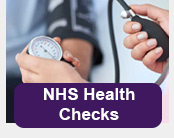We ask you for your personal information so that you can receive care and treatment.
We keep this information, together with details of your care, because it may be needed if we see you again.
All members of staff in the practice are as part of their employment governed by strict confidentiality policy.
There are several methods where information is passed to others. These being:
Referral to other NHS services – when a doctor or nurses refers you to another NHS service, they will need to pass on medical information to them in order to treat you effectively. The referral will be discussed with you by the doctor or nurse and accepting the referral will imply consent for the information to be passed from us with them.
Your Data Matters To The NHS
Information about your health and care helps us to improve your individual care, speed up diagnosis, plan your local services and research new treatments. The NHS is committed to keeping patient information safe and always being clear about how it is used.
How your data is used
Information about your individual care such as treatment and diagnoses is collected about you whenever you use health and care services. It is also used to help us and other organisations for research and planning such as research into new treatments, deciding where to put GP clinics and planning for the number of doctors and nurses in your local hospital. It is only used in this way when there is a clear legal basis to use the information to help improve health and care for you, your family and future generations.
Wherever possible we try to use data that does not identify you, but sometimes it is necessary to use your confidential patient information.
You have a choice
You do not need to do anything if you are happy about how your information is used. If you do not want your confidential patient information to be used for research and planning, you can choose to opt out securely online or through a telephone service. You can change your mind about your choice at any time.
Will choosing this opt-out affect your care and treatment?
No, choosing to opt out will not affect how information is used to support your care and treatment. You will still be invited for screening services, such as screenings for bowel cancer.
What do you need to do?
If you are happy for your confidential patient information to be used for research and planning, you do not need to do anything.
To find out more about the benefits of data sharing, how data is protected, or to make/change your opt-out choice visit www.nhs.uk/your-nhs-data-matters
Summary Care Record – The NHS is also working on providing a summary of your medical information to other Health Care Workers for use in Emergencies. For example, East of England Ambulance Service and West Suffolk Hospital Emergency Departments, these areas would be able to see details on your allergies, current medication and some of your demographic information (such as next of kin details). This will allow for better information to be available to all NHS staff and more holist approach to your treatment. This is an automatic opt-in process, but you can opt-out, forms are available from Reception.
Training – As a training practice for future GPs, information may also be needed to help educate tomorrow’s clinical staff and to carry out medical and other health research for the benefit of everyone. If this requires information to be passed outside the surgery, individual consent will be requested.
Non-NHS providers – Some NHS Services are not provided by NHS providers, if you have formally opted out of the Summary Care Record these providers may not be able to undertake a recall. Therefore you may need to make your own arrangements for recall. An example of this is the Diabetic Eye Screening programme, however you will be advised by the service provider what is required. Confidentiality is written into all contracts in order that the same standards or better than the NHS standard is maintained.
In summary, we only ever use or pass on information about you if it is genuinely necessary. The sharing of all types of personal information is strictly controlled by law. Whenever we can, we remove details that identify you.
Sometimes the law requires us to pass on information; for example, to notify a birth to the Registrar of Births & Deaths or infectious disease, illness.
Anyone who receives information from us is under a legal duty to keep it confidential.
Everyone working for the NHS has a legal duty to keep information about you confidential and you have the right to say no if you do not want information about you given to others.
Bounty Pregnancy and Parenting Club
You may be aware of a recent fine issued Bounty, a pregnancy and parenting club, by the Information Commissioner for sharing information with third parties without making the public aware. You can find more information by clicking this LINK. The practice takes privacy and lawful use of information seriously and works hard to ensure that our service providers, partners and suppliers are trustworthy and compliant and although the practice is not directly affiliated with Bounty, we have looked into the matter to provide our patients with reassurance.
The Information Commissioner has recognised that the information sharing was an historic practice that ceased before recent changes in data protection law came into force. Bounty have confirmed that they have stopped selling details of members who sign up and that they have implemented robust data protection practices. They also have a privacy policy that now explicitly states they have stopped sharing data with those data brokerage firms and will never sell members information in the future. Finally, they have appointed an independent data expert who will assess Bounty’s procedures annually and publish the findings on the Bounty website.
Should you have any questions or concerns, please do let us know.
More Information
If at any time you would like to know more about how we use your information you can speak to our Business Manager Paul Rayner.












